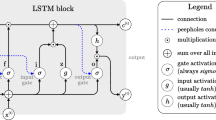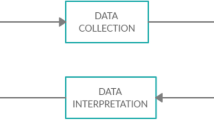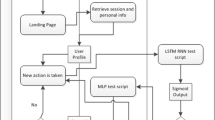Abstract
Personality is generally expressed as the combination of behavior, emotion, motivation, and thoughts that aim to describe different aspects of human behavior based on a few stable and measurable characteristics. Considering the fact that our personality has a remarkable impact in our daily life, automatic recognition of a person's personality attributes can provide many essential practical applications in various aspects of cognitive science. Although various methods have been recently proposed for the task of personality recognition, most of them have mainly focused on human-designed statistical features and they did not make use of rich semantic information existing in users' generated texts while not only these contents can specify its writer's internal thought and emotion but also can be assumed as the most direct way for people to state their feeling and opinion in an understandable form. In order to make use of contextualized information as well as overcoming the complexity and handcraft feature requirement of previous methods, a deep learning based method for the task of contextualized personality recognition is proposed in this paper. Among various deep neural networks, Convolutional Neural Networks (CNN) have demonstrated profound efficiency in natural language processing and especially personality detection. Owing to the fact that various filter sizes in CNN may influence its performance, we decided to combine CNN with AdaBoost, a classical ensemble algorithm, to consider the possibility of using the contribution of various filter lengths and gasp their potential in the final classification via combining various classifiers with respective filter size using AdaBoost. Our proposed method was validated on the Essay and YouTube datasets by conducting a series of experiments and the empirical results demonstrated the superiority of our proposed method on both datasets compared to both machine learning and deep learning methods for the task of personality recognition.



Similar content being viewed by others
References
Han S, Huang H, Tang Y (2020) "Knowledge of words: an interpretable approach for personality recognition from social media. Knowl-Based Syst 5:105550
Schultz D, Schultz SE (2015) Psychology and work today: pearson new international edition coursesmart eTextbook. Routledge
Shao Z, Song S, Jaiswal S, Shen L, Valstar M, and Gunes H (2021) "Personality recognition by modelling person-specific cognitive processes using graph representation," in proceedings of the 29th ACM international conference on multimedia, , pp. 357–366.
Xue D et al (2018) Deep learning-based personality recognition from text posts of online social networks. Appl Intell 48(11):4232–4246
Majumder N, Poria S, Gelbukh A, Cambria E (2017) Deep learning-based document modeling for personality detection from text. IEEE Intell Syst 32(2):74–79
Barrett HC (2020) "Towards a cognitive science of the human: cross-cultural approaches and their urgency. Trends Cognit Sci 2:671
Frauenstein ED, Flowerday S (2020) "Susceptibility to phishing on social network sites: a personality information processing model. Computers Secur 58:101862
Sadr H, Pedram MM, Teshnehlab M (2019) "A robust sentiment analysis method based on sequential combination of convolutional and recursive neural networks. Neural Process Lett 63:1–17
Sadr H, Pedram MM, Teshnehlab M (2020) Multi-view deep network: a deep model based on learning features from heterogeneous neural networks for sentiment analysis. IEEE Access 8:86984–86997
Sadr H, Pedram MM, Teshnehlab M (2021) Convolutional neural network equipped with attention mechanism and transfer learning for enhancing performance of sentiment analysis. J AI Data Min. https://doi.org/10.22044/jadm.2021.9618.2100
S. Yakhchi, A. Beheshti, S. M. Ghafari, and M. Orgun, "Enabling the Analysis of Personality Aspects in Recommender Systems, 2020.
Yang J-T, Liu G-M, and Huang SC-H (2020) "emotion transformation feature: novel feature for deception detection in videos," in 2020 IEEE international conference on image processing (ICIP), IEEE, pp. 1726–1730.
Nilugonda M and Madhavi K (2020) "A survey on big five personality traits prediction using tensorflow," in E3S web of conferences, vol. 184: EDP Sciences, p. 01053.
Jalaeian Zaferani E, Teshnehlab M, Vali M (2021) Automatic personality recognition and perception using deep learning and supervised evaluation method. J Appl Res Indus Eng 3:52
Remaida A, Abdellaoui B, Moumen A, and El Idrissi YEB (2020) "Personality traits analysis using artificial neural networks: a literature survey," in 2020 1st international conference on innovative research in applied science, engineering and technology (IRASET), IEEE, pp. 1–6.
Soleymanpour S, Sadr H, Soleimandarabi MN (2021) "CSCNN: Cost-sensitive convolutional neural network for encrypted traffic classification. Neural Process Lett 6:1–27
Saxena A, Khanna A, Gupta D (2020) Emotion recognition and detection methods: a comprehensive survey. J Artif Intell Syst 2(1):53–79
Castellanos HA (2016) "personality recognition applying machine learning techniques on source code metrics," in FIRE (Working Notes), pp. 25–29.
Salama ES, El-Khoribi RA, Shoman ME, Shalaby MAW (2021) A 3D-convolutional neural network framework with ensemble learning techniques for multi-modal emotion recognition. Egyptian Inform J 22(2):167–176
Kunte A, Panicker S (2020) "Personality prediction of social network users using ensemble and XGBoost. Progr Comput, Anal Netw 5:133–140
Baig MM, Awais MM, El-Alfy E-SM (2017) AdaBoost-based artificial neural network learning. Neurocomputing 248:120–126
Zhang B et al (2019) Ensemble learners of multiple deep CNNs for pulmonary nodules classification using CT images. IEEE Access 7:110358–110371
Golbeck J, Robles C, and Turner K (2011) "Predicting personality with social media," in CHI'11 extended abstracts on human factors in computing systems, pp. 253–262.
Golbeck J, Robles C, Edmondson M, and Turner K (2011) "Predicting personality from twitter," in 2011 IEEE third international conference on privacy, security, risk and trust and 2011 IEEE third international conference on social computing, IEEE, pp. 149–156.
Quercia D, Kosinski M, Stillwell D, and Crowcroft J (2011) "Our twitter profiles, our selves: Predicting personality with twitter," in 2011 IEEE third international conference on privacy, security, risk and trust and 2011 IEEE third international conference on social computing, IEEE, pp. 180–185.
Alam F, Stepanov EA, Riccardi G (2013) “Personality traits recognition on social network-facebook,” WCPR (ICWSM-13). MA, USA, Cambridge
Skowron M, Tkalčič M, Ferwerda B, and Schedl M (2016) "Fusing social media cues: personality prediction from twitter and instagram," in Proceedings of the 25th international conference companion on world wide web, , pp. 107–108.
Li L, Li A, Hao B, Guan Z, Zhu T (2014) Predicting active users’ personality based on micro-blogging behaviors. PloS one 9(1):84997
Bai S, Zhu T, and Cheng L (2012) "Big-five personality prediction based on user behaviors at social network sites," arXiv preprint arXiv:1204.4809
Peng K-H, Liou L-H, Chang C-S, and Lee D-S (2015) "Predicting personality traits of Chinese users based on facebook wall posts," in 2015 24th wireless and optical communication conference (WOCC), IEEE, pp. 9–14.
Argamon S, Dhawle S, Koppel M, and Pennebaker JW (2005) "Lexical predictors of personality type," in proceedings of the 2005 joint annual meeting of the interface and the classification society of North America , pp. 1–16.
Mairesse F, Walker MA, Mehl MR, Moore RK (2007) Using linguistic cues for the automatic recognition of personality in conversation and text. J Artif Intell Res 30:457–500
Yu J and Markov K (2017) "Deep learning based personality recognition from facebook status updates," in 2017 IEEE 8th international conference on awareness science and technology (iCAST), IEEE, pp. 383–387.
Tandera T, Suhartono D, Wongso R, Prasetio YL (2017) Personality prediction system from facebook users. Procedia Computer Sci 116:604–611
Wang Z, Wu C-H, Li Q-B, Yan B, Zheng K-F (2020) Encoding text information with graph convolutional networks for personality recognition. Appl Sci 10(12):4081
Mikolov T, Chen K, Corrado G, and Dean J (2013) "Distributed representations of words and phrases and their compositionality, Nips,".
Xue D et al (2017) Personality recognition on social media with label distribution learning. IEEE Access 5:13478–13488
Mohammad SM, Kiritchenko S (2015) Using hashtags to capture fine emotion categories from tweets. Comput Intell 31(2):301–326
Sun X, Liu B, Cao J, Luo J, and Shen X (2018) "Who am I? Personality detection based on deep learning for texts," in 2018 IEEE International conference on communications (ICC), IEEE, pp. 1–6.
Author information
Authors and Affiliations
Corresponding author
Additional information
Publisher's Note
Springer Nature remains neutral with regard to jurisdictional claims in published maps and institutional affiliations.
Rights and permissions
About this article
Cite this article
Mohades Deilami, F., Sadr, H. & Tarkhan, M. Contextualized Multidimensional Personality Recognition using Combination of Deep Neural Network and Ensemble Learning. Neural Process Lett 54, 3811–3828 (2022). https://doi.org/10.1007/s11063-022-10787-9
Accepted:
Published:
Issue Date:
DOI: https://doi.org/10.1007/s11063-022-10787-9




